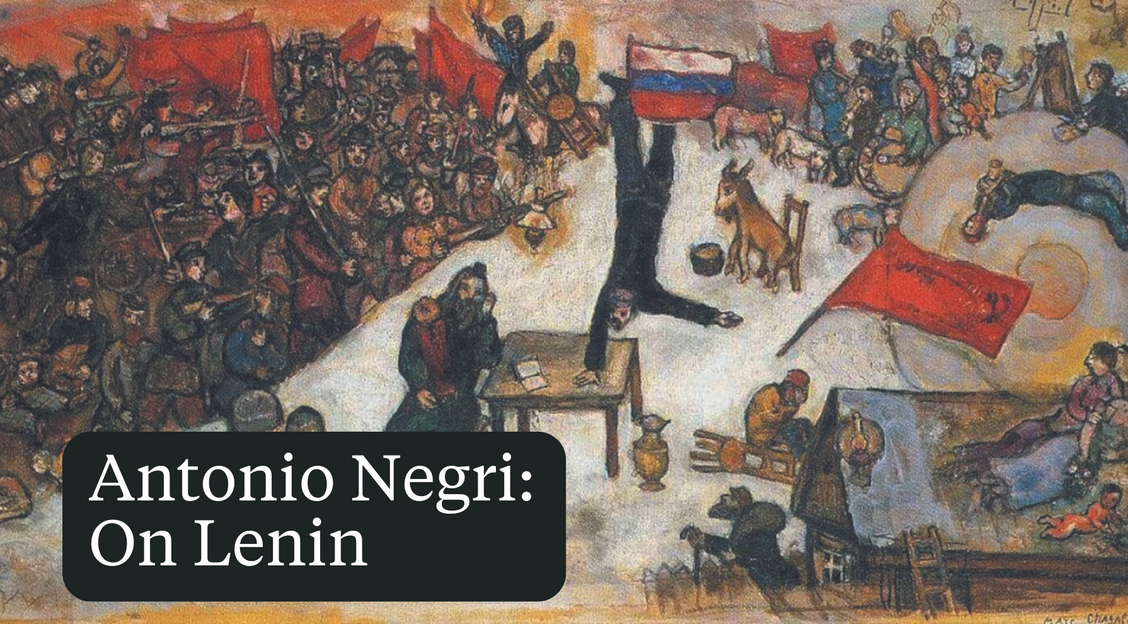Antonio Negri argues that The State and Revolution by Lenin is the best introduction to Marxism as it places bodies within the daily revolutionary struggle.

When asked which book offers the best introduction to Marxism, I answer: The State and Revolution by Vladimir Ilyich Lenin. Why? Because, if Marx is the brains of Marxism, Lenin is its body; and, for materialists, the brain too is located in the body. Marxism is not an economic theory, but a critique of political economy, where critique, first of all, signifies one’s capacity for analysis by immersion in a chaotic, conflict-ridden world, materially dominated by bosses who exploit you and a sovereign who commands you.
These relations – ‘exploits you’, ‘commands you’ – mean that such control involves your body: that is, the bodies, energy, passions and values of those who live and work on our planet. With The State and Revolution, Lenin places bodies within the daily struggle where economic demands and political passion, emancipatory effort and emancipatory power, are conjoined. In this initial approach, The State and Revolution signifies bodies in struggle against the materiality of capitalist control.
This connection reveals an initial meaning of Marxism as critique: it signifies being within political economy, remaining inside the complex of acts of exploitation and means of power (of capitalism and sovereignty), inside the indissoluble bond that makes of them a state. The state is the exploitation of the bodies of labourers and command over the brains of subjects. Revolution is the critique exercised by bodies against this exploitation and sovereign power.
Emerging from the inside, critique, at the same time, induces the power of the against. ‘Against’ signifies understanding how bodies can proceed against capital; hence it invites translating Capital – the inexhaustible book of Marxist critique – into the materialist experiment of a possible revolution. Because the ‘within-against’ conjugation follows, and determines, the materialist mutation of the set of bodies into classes and thus constitutes the red thread of subjectivation into class struggle. The pedagogy of Marxism, which is only science qua critique and only critique qua subjectivation, is planted on this peak of Lenin’s discourse. It is not possible to be Marxist other than within the Leninist paradox of the totality and the partial viewpoint. And notice then how Capital comes, so to speak, to be subjectivated – which does
not mean abandoned to the pleasures of a philology that is invariably curious and sometimes dissolute, or to the ceremonies of a rebellious dogmatism. Rather, it means re-articulated in its historical relationship with struggles, in the different technical and political compositions of the two classes. As Roman Rosdolsky noted, the initial plan of Capital envisaged a chapter on the state. Marx was unable to write it as the continuation of the great chapters of economic critique he had already composed. But, in his historical writings and interventions in the International, the people and parties it comprised, he sketched a theoretical framework.
There Lenin adopted it, and imparted to it a musculature, with the experience of a victorious class struggle taking the place of unclear incidents and occasional volcanic party polemics. Here, ‘subjectivation’ assumes its true meaning, as pedagogy and also as the apex of the operative synthesis of the ‘within and against’ we have registered in the pages of The State and Revolution.
Within and against possibly suffice to put both Capital and Marx’s historical writings into prose. But The State and Revolution goes much further. The revolution, Lenin says, has begun. Where are we going? What is the beyond we are striving towards? And, here, Lenin’s subjective action twists towards reality, from utopia to science, from science to the concreteness of revolutionary force.
It seems that we have returned to the beginning, and that enthusiasm for being located within and struggling against capital has matured as such in a perpetual motion. Such is not the case: here subjectivation makes it possible positively to itemize the transitions that ‘revolutionary deeds’ must accomplish in order to construct the beyond, in order to go beyond the beyond, from socialism to communism. And the road is mapped out with the intelligence and power of constituent praxis.
Utopia is connected with reality and takes shape in conjunction with the attack on current class domination. Thus, the utopian ‘withering away of the state ’ is understood in materialist terms as a constituent process. And we see this process completed, because it is no longer an ideal but a test for the subjectivity that transforms the real: Marx and Lenin are definitively recomposed – and with what force! Destroying the state and reconstructing the set of institutions that make a free existence possible become tasks accomplished in common. When we finish reading The State and Revolution, our bodies are engaged in that task.
— An edited excerpt from The State and Revolution: The Marxist Theory of the State and the Tasks of the Proletariat in the Revolution by V. I. Lenin, Introduction by Antonio Negri.
No comments:
Post a Comment